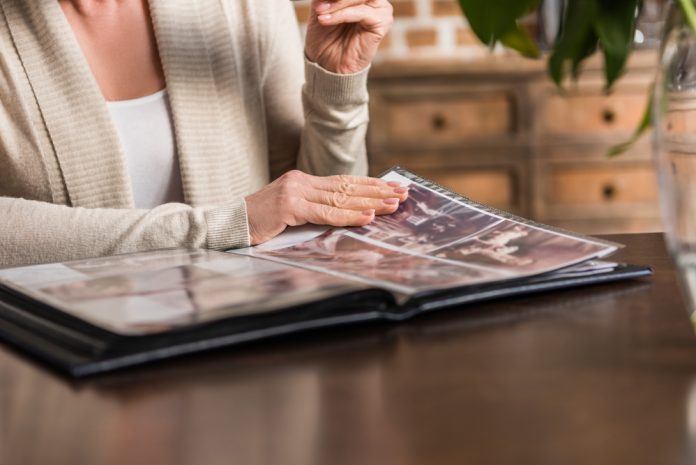
During times of despair, many of us draw comfort from remembering and daydreaming about happy times. These memories and daydreams nourish our mind, body, and soul and make our present reality more bearable as a form of temporary escapism.
I can relate because I’ve been using this coping strategy to deal with the coronavirus pandemic. I’m feeling nostalgic and long for how my life used to be: weekends spent with family, outings with friends, hugs from my grandkids, and feelings of personal safety and economic security. Like many people, I’m also affected by the global state of affairs. The news media bombards us every day with stories of political and social unrest, racial and religious tensions, natural disasters, and political divisiveness with people viciously attacking and bullying each other. These environmental factors, coupled with personal challenges have a negative impact on our well-being.
With so much negativity, I find myself searching for strategies to self-soothe. One strategy that works for me is retrieving memories of happy times filled with love, connection, and laughter by looking at photos of my family and friends. This activity makes my heart sing with joy. I notice that my Facebook community is doing the same as they post photos of past memorable events, usually with family and friends. It’s understandable that during high-stress situations, we seek peace and ways to comfort ourselves.
Learn more about Developing a Resilience Mindset
I gain strength and comfort from people I admire who have gone through traumatic events. Many found solace by developing a rich inner life filled with happy memories that sustained them and helped them to cope. What they have in common is they found ways to transcend their grueling experiences.
For example, in his book, Man’s Search for Meaning, psychiatrist Dr. Victor Frankl, discusses conjuring up images of his wife during happy times and actually having conversations with her while marching to his work site as a slave laborer in the infamous Auschwitz death camp. He also rose above his suffering by visualizing himself giving a lecture in the future on the psychology of the concentration camp. In The Prison Letters of Nelson Mandela, President Mandela reminisces about his son Makgatho’s happy childhood surrounded by love. These memories sustained and nourished them and provided respite from their suffering and daily drudgery of their lives.
Now don’t get me wrong, I’m not comparing this pandemic to Dr. Viktor Frankl’s experiences in the Holocaust or to President Nelson Mandela’s incarceration at Robben Island Prison. However, I feel better knowing that if they found comfort in their abhorrent environments, then I can surely find it during this pandemic. They are my role models who teach me lessons that I can apply in my own times of crisis.
I started a project recently to retrieve joyful memories by looking through my twenty-one albums for photos that make me feel happy and alive. Yes, I still print out pictures and put them into albums. I found one of me standing in a field of sunflowers, another on a beach in Hawaii, several dancing, and many with my children and grandkids. I’ve framed and mounted these heartwarming photos on a wall where I can easily see them. When I look at them, it brings me to my happy place. And this makes me feel so good and boosts my morale when I need it.
Read more about The Healing Power of Gratitude
There are many strategies to help us self-soothe and lift our spirits. Here are suggestions to help you get started using a body, mind, and spirit approach to well-being.
- Start your day with a ritual practice to anchor and protect you against stress: listen to calming music and/or hum or sing to yourself; practice relaxation exercises such as deep breathing, yoga, tai chi; meditate; pray; read inspirational literature, etc.
- Practice the basics of well-being:
- Move your body: e.g. exercising, dancing, playing a sport, bicycling, swimming, etc.
- Do a relaxing activity: Use a diffuser with calming essential oils such as lavender, orange, ylang-ylang, or rose; spend time in nature; watch and listen to the fireplace channel on television, etc.
- Eat healthy foods. Enjoy a comforting meal or food, perhaps from childhood.
- Stay hydrated.
- Get enough sleep.
- Give yourself positive pep talks. Tell yourself something like: “I’ve dealt with challenges before. I can do this,” “Past experience has shown me that this too will pass.”
- Get in touch with your feelings and find an emotional outlet. Share your thoughts and feelings with a family member, friend, or therapist, someone you trust and who has a calming effect on you. If you have no one to talk with, write in a journal.
- Connect to a higher meaning in life that provides an internal anchor: Deity, nature, the universe, community, etc.
- Connect with family members, friends, and colleagues who have a calming effect on you. Have lighthearted discussions. Use humor. Tell jokes. Sing songs. Stay away from or minimize contact with toxic people.
- Start a creative activity: dance; write a poem; color (there are adult coloring books); paint; listen to and make music; compile a photo album and/or scrapbook of memorable events, try a new recipe.
- Incorporate a positive word into your vocabulary, e.g. wonderful, delight, awesome.
- Create a living space that nourishes and replenishes you as you surround yourself with objects and mementos that have a calming effect. It can be as simple as a special chair you call your own.
- Participate in pleasurable activities that give joy and meaning to your life. Ask yourself the questions: “What gives me pleasure?” “What makes me happy?” Give yourself permission to be playful and silly.
- Incorporate joyful rituals into your everyday lifestyle: tell someone you love them; show yourself kindness by treating yourself to something special such as a lingering bath with candles and music; buy yourself flowers.
- As your day ends, focus on at least one positive experience that happened, e.g. someone smiled at you; the breeze on your face; the sun infusing your body with warm energy; a conversation that lifted your spirits.
- Think about or write down at least three things you are grateful for. Remember to appreciate your body. Consider keeping a gratitude journal. Practice gratitude for the blessings in your life.
These are some suggestions to get your mind thinking of self-soothing strategies. You probably have others. The key is to find ones that work for you and integrate them into your daily life.








